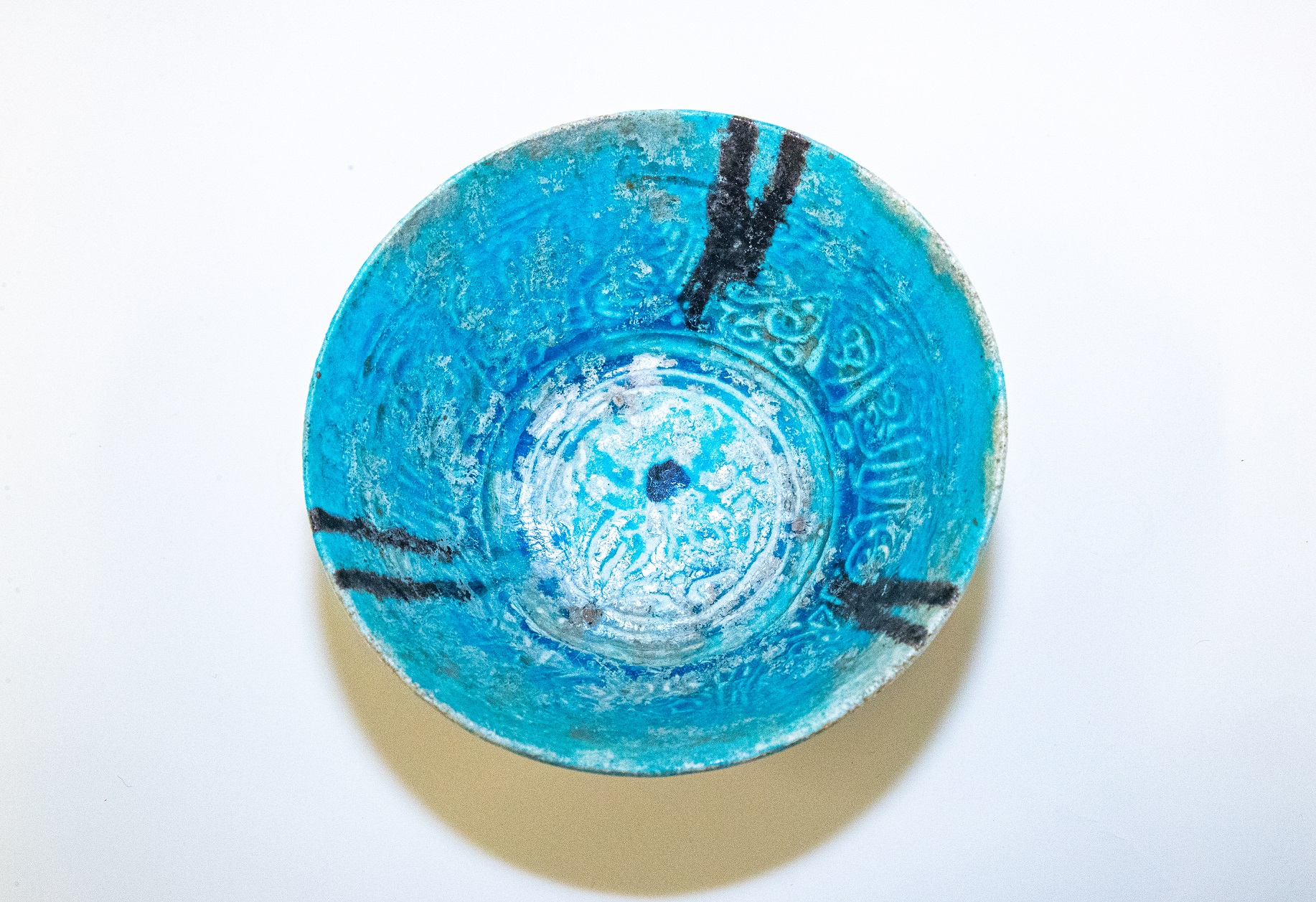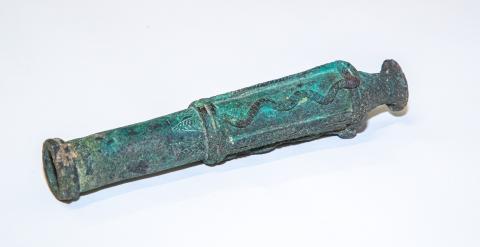Four objects of Iranian cultural heritage have been returned to the Embassy of the Islamic Republic of Iran.

The repatriation of an Islamic pottery bowl and 3 Luristan bronzes was marked in a handover ceremony today at the Embassy of the Islamic Republic of Iran. The imported objects were seized and returned under the Protection of Movable Cultural Heritage Act 1986.
The pottery bowl dates from the 13th century, and is associated with the Khorasan region in the eastern part of Iran. It has a turquoise glaze and a prominent black inscription in Nasta'liq script wishing health and prosperity to its owner.
Objects with visual similarities to this bowl have been excavated in centres of ceramic production in Iran, such as Kashan and Nishapur. They are significant for the study of developments in medieval techniques and the design of ceramic objects, as well as the relationship between workshops in the Islamic world and beyond.
The bronze bracelet, which features ducks at each end, dates from the first millennium BCE and comes from the Luristan district in western Iran.

Similar bracelets have been excavated from Iron Age cemeteries, which were subject to looting in the early to mid-20th century, leading to circulation of a large number of metal jewellery and other objects on the antiquities market.
The copper finial with serpentine forms and the leaded bronze finial with three faces are also from Luristan, dating to 1000–600 BCE. They contain stylized human and animal elements typical of Luristan bronzes.


The objects had been unlawfully removed from Iran, sold overseas and intercepted by the Australian Border Force (ABF) upon entry into Australia from the United States.
The ABF alerted our Cultural Property Section, which undertook an investigation.
After consultation with experts and a repatriation request from Iran, the objects were seized so they could be returned to Iran.
Australia and Iran are signatories to the UNESCO Convention on the Means of Prohibiting the illicit Import, Export and Transfer of Cultural Property 1970, providing for international cooperation to prevent and abate the trafficking of cultural material.

